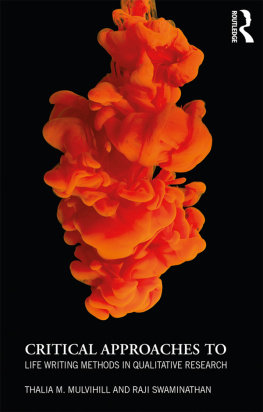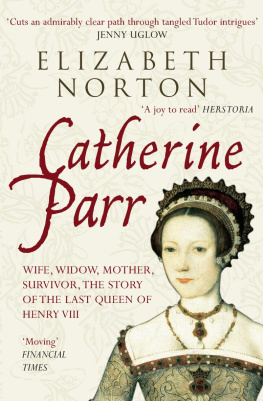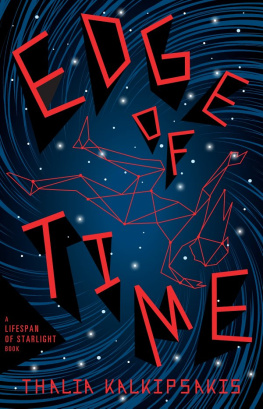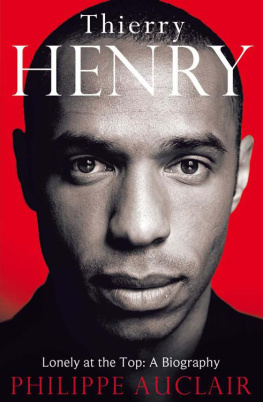HOUGHTON MIFFLIN HARCOURT
BOSTON NEW YORK
2009
INTO LOVE AND OUT AGAIN
THEN SHE FOUND ME
THE WAY MEN ACT
ISABEL'S BED
THE INN AT LAKE DEVINE
THE LADIES' MAN
THE DEARLY DEPARTED
THE PURSUIT OF ALICE THRIFT
MY LATEST GRIEVANCE
THE FAMILY MAN
Copyright 2009 by Elinor Lipman
ALL RIGHTS RESERVED
For information about permission to reproduce selections
from this book, write to Permissions, Houghton Mifflin
Harcourt Publishing Company, 215 Park Avenue South,
New York, New York 10003.
www.hmhbooks.com
Library of Congress Cataloging-in-Publication Data
Lipman, Elinor.
The family man / Elinor Lipman.
p. cm.
ISBN 978-0-618-64466-7
1. Gay lawyersFiction. 2. StepdaughtersFiction.
3. Fathers and daughtersFiction. 4. Upper West Side
(New York, N.Y.)Fiction. 5. Domestic fiction. I. Title.
PS 3562.1577F36 2009
813'.54dc22 2008046222
Book design by Melissa Lotfy
Printed in the United States of America
Doc 10 9 8 7 6 5 4 3 2 1
A portion of this book appeared, in slightly
different form, in the Southern Review.
This book is for
MAMEVE MEDWED
STACY SCHIFF
ANITA SHREVE
Contents
H ENRY ARCHER DID not attend his ex-wife's husband's funeral, but he did send a note of condolence. The former Denise Archer wrote back immediately and urgently: Would he believe, after twenty-four reasonably happy years, that life as she knew it had been snatched out from under her? Her postscript said, "Your number's unlisted. Call me," and there it was, a bridge he'd never planned to cross.
His quiet greeting, "It's Henry Archer, Denise," provoked an audible sob. She quickly clarified that it wasn't bereavement he was hearing in her voice, but relief, a sense she'd been thrown a lifeline.
"Me?" he asked.
Could he stand hearing the whole sordid story? Had he known that Glenn Krouch had two sons from another marriage? Because they were getting everything, every last thing except the clothes, the furs, the jewelry, and one signed Picasso, which was only a pencil sketch. Was he sitting down? Because some famously heartless lawyer had set twenty-five years of marriage as the watershed anniversary after which the prenuptial agreement would deem her long-suffering enough to be a true wife (voice crescendos) and not some piece of shit! It was, in the opinion of two lawyers (husbands of friends, not their area of expertise, should she get a third or fourth opinion?), a hideously airtight legal document. And now these stepsons were taking the will so literally, as if twenty-four faithful years didn't render a pre-nup null, void, and vicious. How many times had she asked Glenn if he'd updated his will, meaning, Am I in it? To which he'd always said, Yes, of course.
The "of course" amounted to a monthly allowance under the thumb of older son and executor, Glenn Junior. Horrible! And so much for Glenn Senior's famous love for Thalia! Henry remembered Thalia, didn't he? Another indignity: Thalia's portion was in trust until she was thirty-five. How condescending and sexist was that? Had she mentioned that these sons, not even thirty-five themselves, were not only Glenn's favorite children but his business partners as well? And who but she, their reviled stepmother, had arranged every detail of the black-tie party celebrating the addition of "& Sons" to all signage and had invited the boys' mother and seated her at the head table?
She'd helped raise these stepsons since they were eight and ten, buying bunk beds and electronics for their alternate weekends, enduring camp visiting days and humid swim meets. In some families, the ice might have melted; young Glenn and Tommy could have developed warm filial feelings toward her as years went by and the marriage appeared to make their father happy. But apparently nothing mended a mother's broken heart like sending the second wife to the poorhouse.
If only she'd known ... well, she had known. She'd signed the hideous document, thinking divorce was the only thing she had to fear. Besides, who thought Glenn with his good stress tests and low blood pressure would die at seventy? The boys got the business, its buildings and outbuildings, and the unkindest, most ridiculous bequest of all: Denise's marital home, the five-bedroom apartment on Park Avenue! Could Henry even imagine what it was worth now? Her friends said the noninheritance was antediluvian, like a Jane Austen movie or a Masterpiece Theatre miniseries where the male heirs get to throw the mother and daughter to the wolves.
Infuriating and unfair! One would think that she, the second wife, was single-handedly the home wrecker, no fault of Daddy's, because of course he had made restitution with cars, then condos, then partnerships. Who could hold a grudge this long? If only she'd had a job that had contributed to her own upkeep and toward the mortgage payments. Were there mortgage payments? She wished she'd been paying better attention to that, too. Admittedly, ten rooms were too many for a woman living alone. But wasn't downsizing a widow's prerogative? Three real estate agents from one office, all clucking their condolences as they took measurements, had spent hours counting closets and flushing toilets, exactly two weeks and one day after Glenn's funeral. And yes, the sons did offer something like an extension: Denise could stay as long as she paid the common charges and the taxes, which, conveniently for her new overlords, exceeded her monthly allowance.
"I wish you'd been there," Denise told her ex-husband.
"Where?"
"At the wake! If my friends hadn't seen it with their own two eyes, they'd never believe that Nanette crashed the receiving line, wearing a black suit that screamed I'm the widow, too. Yes, I hugged her and yes, we looked like one big happy family in mourning, but I was numb. I didn't mean it! I was on widow autopilot."
"Maybe," Henry ventured, "Nanette was there to support her children."
"All I know is that the minute I turned my back, that self-appointed chief of protocol, Glenn Krouch Junior, pulled his mother into the receiving line. I don't think I've ever felt so utterly alone."
"Thalia wasn't there?" Henry asked.
"Thalia was there. Thalia chose to stand at the other end of the line."
"Because?"
"Who knows why daughters do these things? I can't keep track of my maternal shortcomings. She and I ... well, never mind. Needless to say, we weren't speaking before that and we're not speaking now."
"I'm sorry. One would think, especially on that day"
"I should have had a child with Glenn, a flesh-and-blood Krouch. And when I think that I viewed his vasectomy as one of the original selling points"
"Selling points in favor of your extramarital affair?" asked Henry. "How soon did that come up? The night you met?"
"Oh, hon," said Denise. "Is that always going to be a sore subject? Even though you've made peace with your sexual orientation?"
I hate you still, he thought.
How odd to be his ex-wife's confidant. Henry has done nothing to advance a rapprochement, but Denise has called him daily to rant further about greedy stepsons and the breadline. Her chumminess and her invitations suggest that he is a safe companion for a widow, that a gay ex is something of a status symbol, that her betrayal is not only ancient history, but has been absolved by his subsequent sexual homecoming. When Denise pauses for breath, he asks about Thalialocation, job, marital status, content of their last communication, and particularly what Thalia understands of the short-term father named Henry Archer who didn't fight for her in court. Invariably Denise, the new woman who has declared herself a work in progress, changes the subject back to Denise.
Next page








